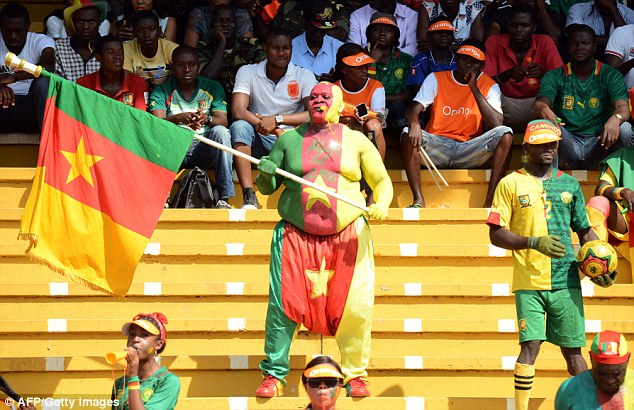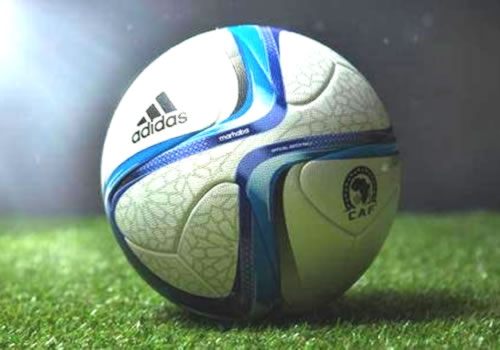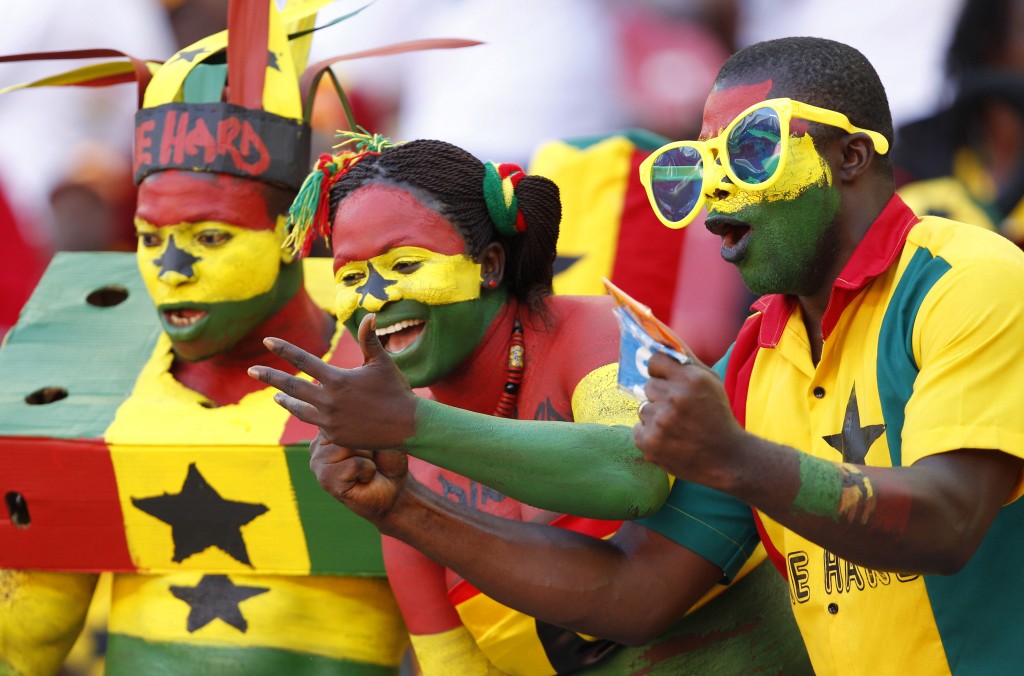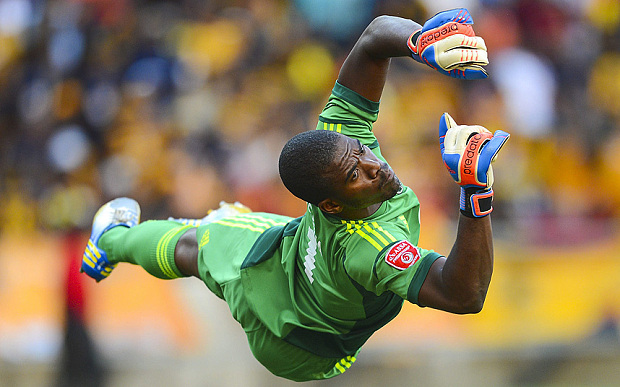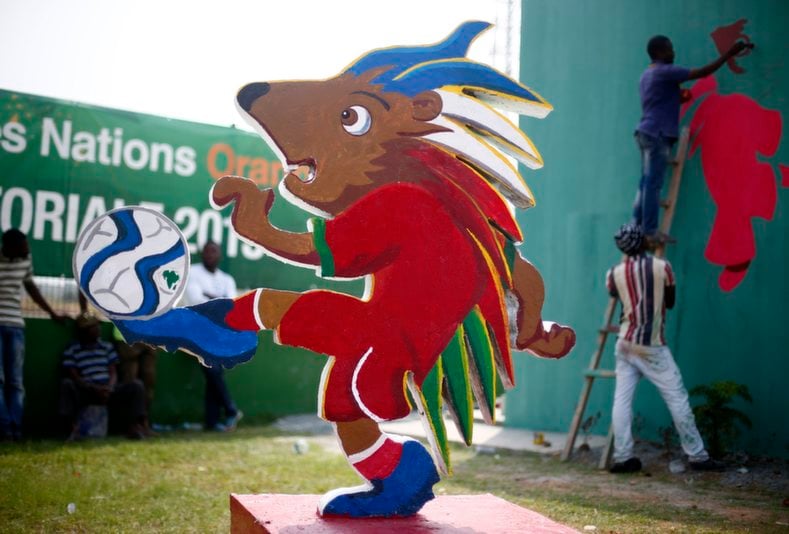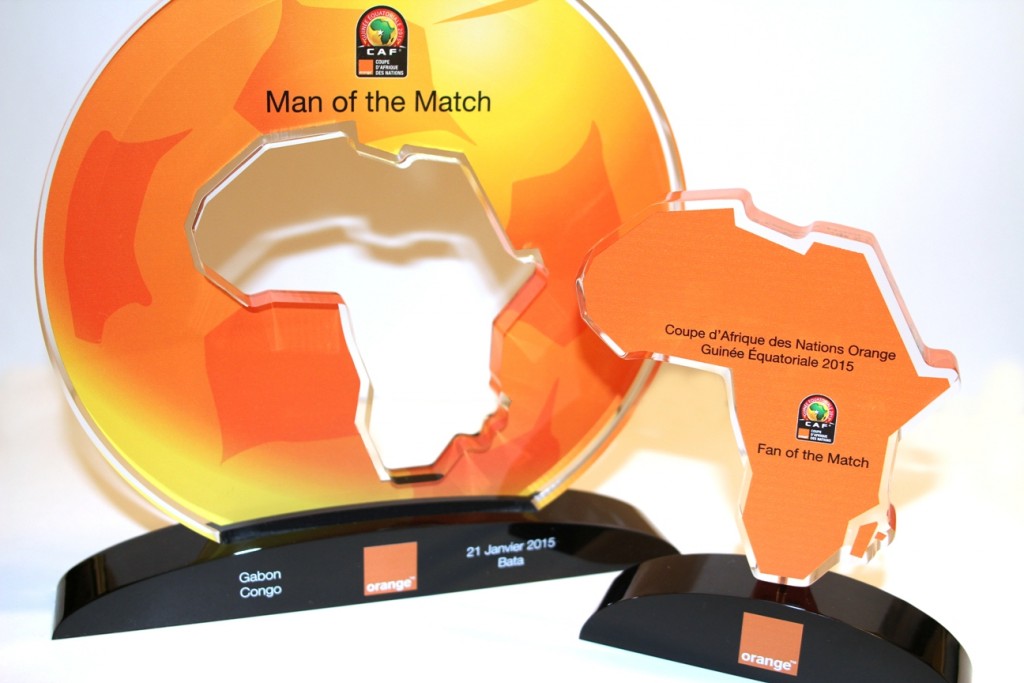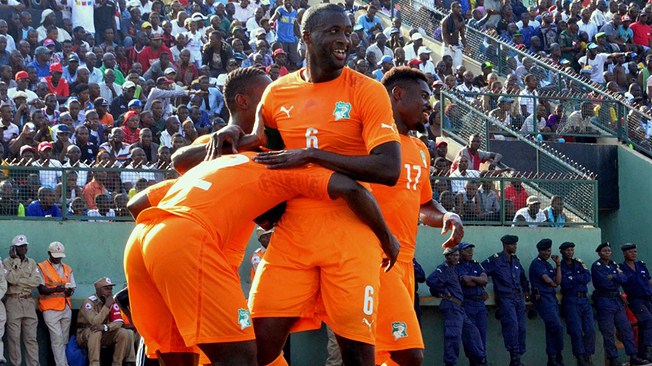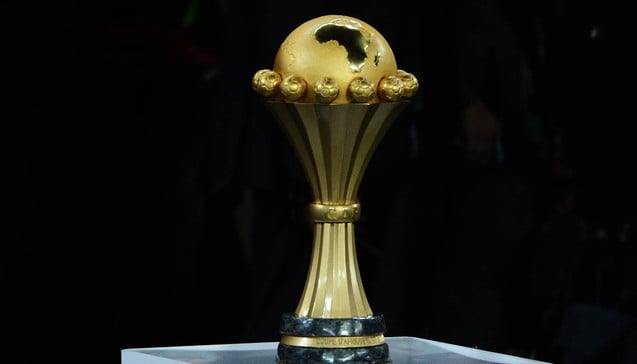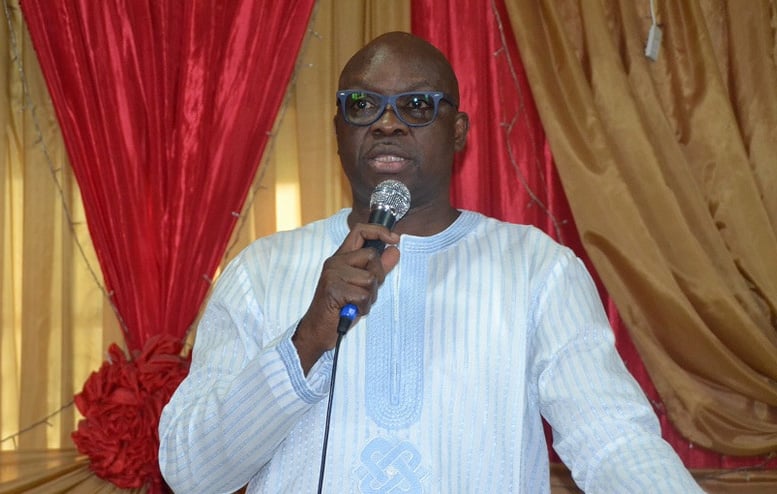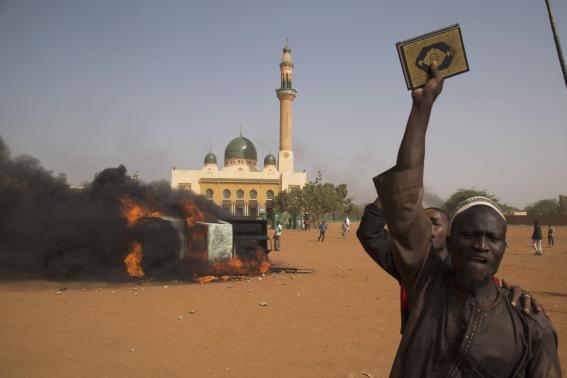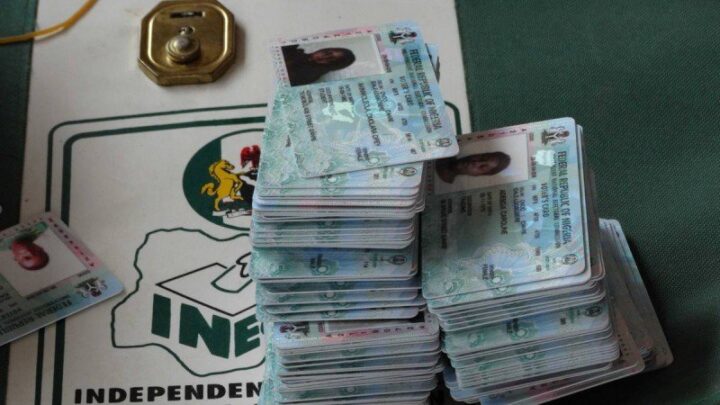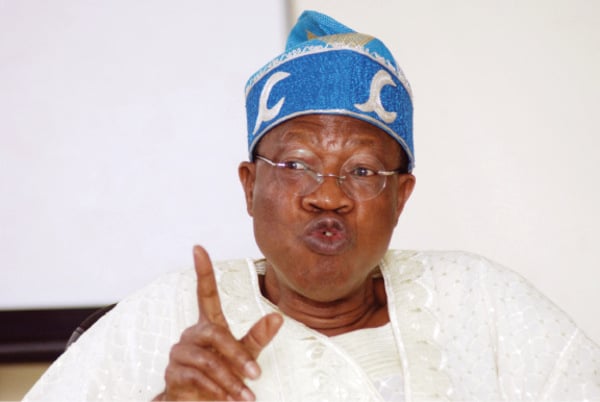The 30th edition of the Orange Africa Cup of Nations (AFCON) kick-off in Equatorial Guinea with 16 of the finest teams on the continent jostling for the trophy.
But how much do you know of the competition – its history, host, players and the participating countries?
Here is an alphabetical guide.
A IS FOR ALGERIA
Advertisement
They are the number one ranked team in Africa by FIFA and are favourites to win only their second AFCON after triumphing at home in 1990.
B IS FOR BALL
Advertisement
Like the popular nursery rhyme B is still for ball but this time it’s called Marhaba made by Adidas. It has distinctive gold and blue colouring which represents Africa’s landscape – from the Sahara desert to the Indian and Atlantic oceans.
C IS FOR CONGO DR AND CONGO
Between them, they have won three AFCON titles but they are what you could refer to as ‘old school’ champions! Congo DR won it in 1968 and 1974 while Congo were 1972 champions. Congo are appearing at their first Nations Cup since 2000 while their nearest but not dearest namesake have not reached the Nations Cup quarter-finals since 2006.
D IS FOR DEATH
Advertisement
Not what you think. But have you discovered that in any major tournaments there’s always a group called the Group of Death? In this one it is Group C comprising South Africa, Ghana, Algeria and Senegal. The two teams that survive here should go far in the tournament, we think!
E IS FOR EBOLA
It dominated the headlines during the qualifiers causing Morocco to pull out as host. Even as the AFCON kicks off, Ebola is still on everybody’s lips as all teams arriving in Equatorial Guinea are required to travel through the capital Malabo and have tests for the virus. Hmmm….
F IS FOR FANS
Advertisement
We often hear that football is a media event. But can you imagine the game without lovers of the game? Africa fans are quite unique. From the vuvuzela-blowing ones to the painted faces and pots carrying others, fans across the continent add colour and glamour to the game. And yes, they also now do the Mexican wave!
Advertisement
G IS FOR GHANA
Behind Egypt and alongside Cameroon, Ghana are the most successful country in AFCON history. The Black Stars have won it four times but have not lifted the trophy for 33 years. They have reached the last four Nations Cup semi-finals, though. One more step and eureka!
Advertisement
H IS FOR HOSTS
E was for Ebola but it could as well as be for Equatorial Guinea. For having the courage to host Africa at short notice despite all the challenges, H is for the hosts! But how much do you know the country? Yes, they were once colonized by Spain. Of course, Malabo is the capital. Indeed, the country is one of the largest oil producers in sub-Saharan Africa. What else? Erm, erm…
Advertisement
I IS FOR INDOMITABLE LIONS
Cameroon have the most intimidating nickname in Africa football. They won the cup in 1984, 1988, 2000, and 2002. They failed to qualify for the 2012 and 2013 editions and also had an ignoble experience at the last World Cup. Still indomitable? Well, they were able to shrug off those disappointments and the retirement of Samuel Eto’o to qualify unbeaten. Strikers Aboubakar and Clinton N’Jie scored seven of Cameroon’s nine qualifying goals and the fans now ask: Samuel who?
J IS FOR JOURNALIST
Yes we agree: football is a media event. Journalists across the continent and beyond will cover Africa’s elite football tournament and through their laptops, cameras, and satellites fans across the world will be in Equatorial Guinea without taking a step away from their living rooms.
K IS FOR KEEPERS
Goalkeepers are kill-joy but football has no room for cricket score line so we are stuck with them forever! Mali’s Soumbeila Diakite, Rais M’Bolhi from Algeria and Boubacar Barry of Cote d’Ivoire are just a few to watch out for. Sadly, the keeper that stood out in the AFCON qualifiers is no longer with us. Let’s observe a minute silence for South Africa captain and goalkeeper Senzo Meyiwa who was shot at a house in Vosloorus, a township about 20 kilometres south of Johannesburg last year.
L IS FOR LENGTH
Sixteen teams, 32 games, 18 match days from January 17 to February 8, AFCON 2015 promises to be an exciting affair!
M IS FOR MASCOT
A Squirrel is the official mascot of the 2015 AFCON. A Squirrel can be found in most countries of the world. But this particular Squirrel is called “Chuku Chuku”. Who says Nigeria are not part of the 30th edition of the competition?
N IS FOR NIGERIA
Was tempted to say K is for Keshi but it may be seen as hitting the Big Boss below the belt! So, N is for Nigeria. The defending champions will conspicuously be missing when the AFCON starts. The Super Eagles, under the tutelage of Keshi, could only come third in a qualifying group comprising South Africa, Congo, and Sudan. The omens though, will be good for the country if they qualify for the next competition in 2017 as they will go all the way to the final and win the cup. Their recent AFCON record reads ‘did not qualify, champions, did not qualify…’!
O IS FOR ORANGE
Orange is the title partner of the Africa Cup of Nations in Equatorial Guinea for the 4th consecutive edition. Orange is one of the world’s leading telecommunications operators. Throughout the competition, the Orange brand will be visible in the stadiums of Equatorial Guinea and in the African countries in which the Group is present (Cameroon, Cote d’Ivoire, Congo DR, Guinea, Mali, Senegal and Tunisia) with exclusive content for mobile phones and on the Web via Orange Football Club and the StarAfrica portal.
P IS FOR PLAYERS
We have spoken about the fans and the media but without the players there would be no football. So, be on the look at for two of the shortlist for African Player of the Year award – Pierre-Emerick Aubameyang of Gabon and Yaya Toure of Ivory Coast – and others stars.
Q IS FOR QUALIFICATION
A total of 51 teams entered the qualification matches with only two absentees – Djibouti and Somalia. After the CAF executive committee meeting on January 24, 2014, it was decided that the qualifiers shall be played in the format of several qualifying rounds, as well as a group stage with seven groups consisting of four teams each. The two top teams of each group then directly qualify for the finals, along with the best third place team of the seven groups. The top 21 teams listed in the CAF Ranking automatically qualified for the group stage. The seven other teams playing in the group stage was determined following the conclusion of the qualifying rounds. In the end, 16 teams will battle it out at the AFCON in Equatorial Guinea.
R IS FOR REFEREES
We have mentioned the fans, journalists, and players. The missing link is the referees. Love them, hate them but you can’t do without them. Twenty-four of them from around Africa will blow the whistle at various matches, while 21 assistant referees, including Nigeria’s Peter Edibi, will be running at the side lines.
S IS FOR SOUTH AFRICA
For topping the group that had the defending champions Nigeria, South Africa deserve special mention. They won the cup on their debut appearance in 1996 and the current team is hoping to win yet again to honour late captain and goalkeeper Senzo Meyiwa. But it doesn’t bode well for Bafana Bafana as they have won just one of their last 12 matches at the AFCON.
T IS FOR TROPHY
Throughout the history of the AFCON, three different trophies have been awarded to the winners of the competition. The original trophy, made of silver, was the Abdelaziz Abdallah Salem Trophy, named after the first CAF president, the Egyptian of same name. As the first winner of three Nations Cup tournaments, Ghana won it for keeps in 1978. The second trophy was awarded from 1980 to 2000, and it was named “Trophy of African Unity” or “African Unity Cup”. It was given by the Supreme Council for Sports in Africa to the CAF prior to the 1980 tournament and it was a cylindrical piece with the Olympic rings over a map of the continent engraved on it. Nigeria were the first country to win the new trophy. Cameroon won the Unity Cup indefinitely after they became three-time champions in 2000. In 2001, the third trophy was revealed, a gold-plated cup designed and made in Italy. Cameroon were the first nation to be awarded the new trophy after they won the 2002 edition. Egypt won the gold-plated cup indefinitely after they became three-time champions in 2010, in an unprecedented achievement by winning three consecutive continental titles. Unlike previous winners who would have then taken the trophy home, Egypt were presented with a special full size replica that they got to keep.
U IS FOR UNDERDOGS
The football world loves the underdogs! In the last edition of the AFCON, Burkina Faso were the ‘lightweight’ punching above their size. Let’s wait and see who the Cinderella team will be this time around.
V IS FOR VENUES
Four cities will host matches in this AFCON – Malabo, Bata, Mongomo and Ebebiyin. Estadio de Bata is biggest of the lot and will host the final on February 8.
W IS FOR WIN
Football is only a sport but the winner takes all! It’s the name of the game. Ask Jose Mourinho!
X IS FOR X-RAYS
The letter ‘x’ is comparatively rare in English, especially when used to begin words. We had same challenge when compiling this list, but as it’s said in Pidgin English, at all at all naim bad, so we have settled for x-ray! Let’s use the word in an example: An x-ray to show the extent of the injuries sustained by Senegal’s Demba Ba was done and sadly, the former Chelsea forward won’t be in Equatorial Guinea for the AFCON!
Y IS FOR YAYA
Yes, Yaya Toure, the four times African Player of the Year. The Manchester City midfielder is the biggest player going into the tournament and he’s expected to lead his country only to their second triumph in the competition’s history.
Z IS FOR ZAMBIA
Letter ‘z’ is as limiting as letter ‘x’ but thank God for Zambia! Zambia won the 2012 tournament when Equatorial Guinea co-hosted with Gabon. One year later, the defending champions exited the competition without winning a match. The Chipolopolo are back in Equatorial Guinea their preferred venue of the AFCON!
Add a comment
